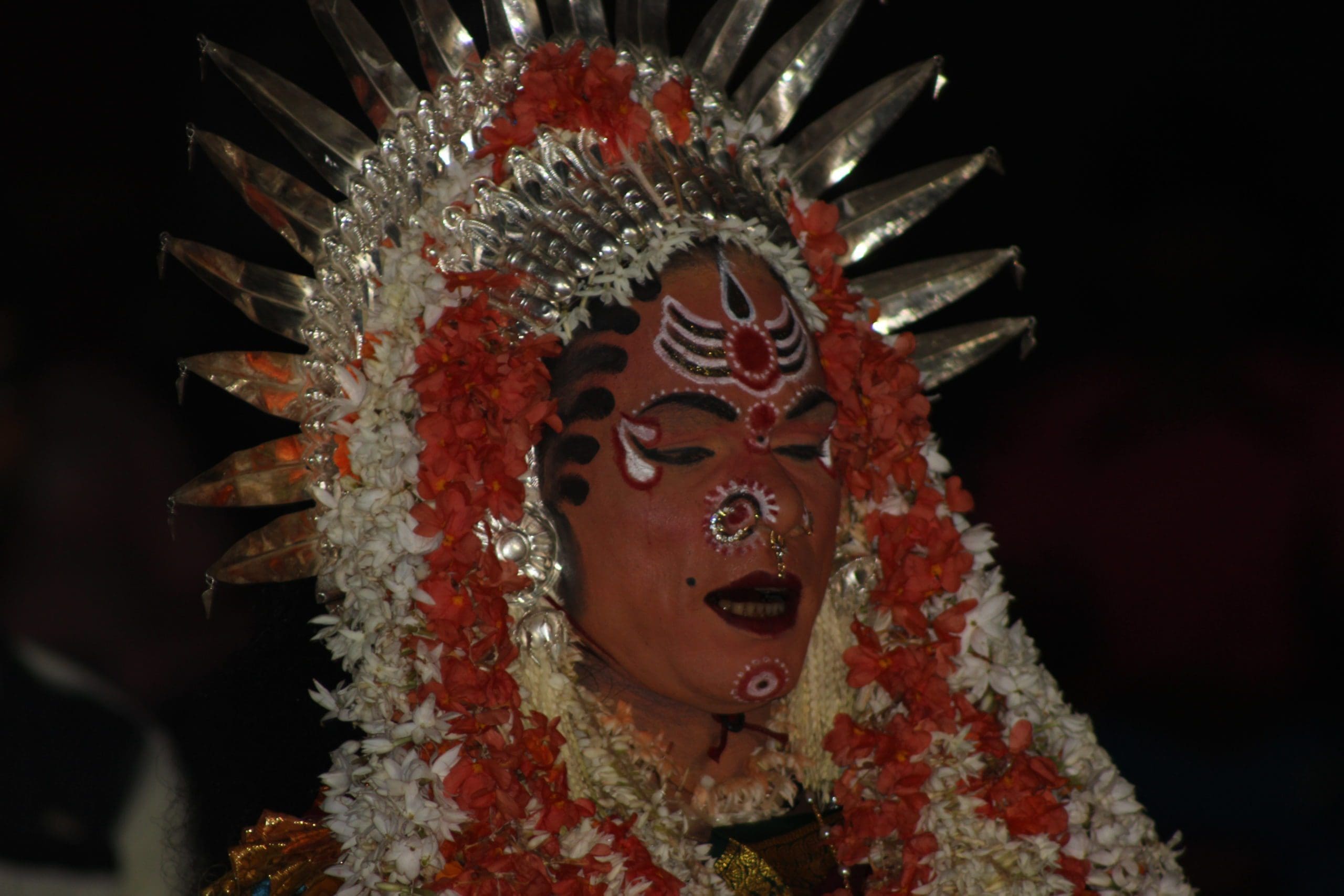
We came to know that bhootaaraadhane is the important form of worship of the bunts. Every house of bunts worshipped these bhootas. In some of the houses, it is the worship or important event of the entire family. Every member of the family should be present on that particular day. Besides that, in most of the bhoota shrines of a village, bunts had the important role to play. Important houses like beedu, baalike, guthu, paraari, aranthade etc. belonged to bunts community.
Eldest male member of those houses use to go the festivities of bhoota shrines of their village where they were honoured according to the social status of their house. But to get this official honour, he should perform a ritual called “gadi paththuni” in the presence of the bhoota.
On the day of “Kola” (annual festival) of that particular bhoota, eldest male member of the family will be called by name by the “darshana paathri” in the presence of the villagers and prasadam will be given. This ritual is called as “gadi paththuni”. This ritual is performed only once in one generation. Two persons in one family can not perform this ritual at one time. Hence, this is considered as one of the important social status to that person as well as to his family. In every festival, bhoota should call them first, of-course after Brahmins and guests, to give prasadam before the general public. For any reason, if any male member of that family didn’t perform the ritual of “gadi paththuni” bhoota can not call him or his family members first to give prasadam, which has become the rule of bhoota worship followed even today. No one else in that family, other than that person, has the right to touch or represent that family in the bhoota shrine. Only after his death, when the second person performs the ritual, then only he can represent that family.
After the death of that person, entire family decides that the next eldest person should perform the ritual of gadi paththuni. But on some inevitable circumstances, when the eldest person is physically or mentally unfit, or if he refuses to accept, then the family members will select the next eldest male member. When no one in that family come forward to accept the “gadi” then on the annual festival day (Kola) bhoota will summon all male members of that family and insist any one of them to accept “gadi” and makes him the family representative. Now a days this has become the regular feature as most of the members live abroad or in a far away city.
The person who has performed the “gadi” ritual should observe some strict dieting or fasting during the festival days of that bhoota and he should be present on that day, which is a must. For this reason most of the people escape from this commitment.
In olden days, every one came forward to perform gadi ritual. Those days he was respected not only in the bhoota shrines but also in his village and other societies also. But in today’s changed and technologically developed society, such respects are not in consideration or no more in existence.
The person who performs the gadi ritual should follow some strict rules in his personal life. He should not intake any food in the morning without having bath. No lady, during the monthly period, should enter the inner section of his house. He should never touch the dead body, including of his parents. He should neither visit a house during the mourning period nor have dinner or lunch of last rites. He should not wear a shirt in the bhoota shrine.
Besides that, there is some sort of unreasonable inferiority complex in bhoota worship. Some educated lot say that bhoota worship is a blind belief. Yes, there are a few educated people who have gone to the extent of saying even god worship is also an unnecessary practice. But is it not ridiculous the same people adoring film stars, sportsmen or politicians?
Due to various reasons, gadi ritual, once considered as a respectable position has now lost its charm. Day by day it is losing its position, social status and attraction in our community as well as society. Today we are in a stage where people refuse to perform gadi ritual. The scene of five – six people who had performed gadi ritual with colourful silk headgears (mundaas) and without shirts assemble at the bhoota shrine has become the past glory.
Today, Bhootaaraadhane might have lost its charm, social status or the past glory, but within the depth of his heart every Bunt or Tuluva still believes in bhoota worship and finds some solace, at least when he passes through some difficult phase of his life.

Be the first to comment